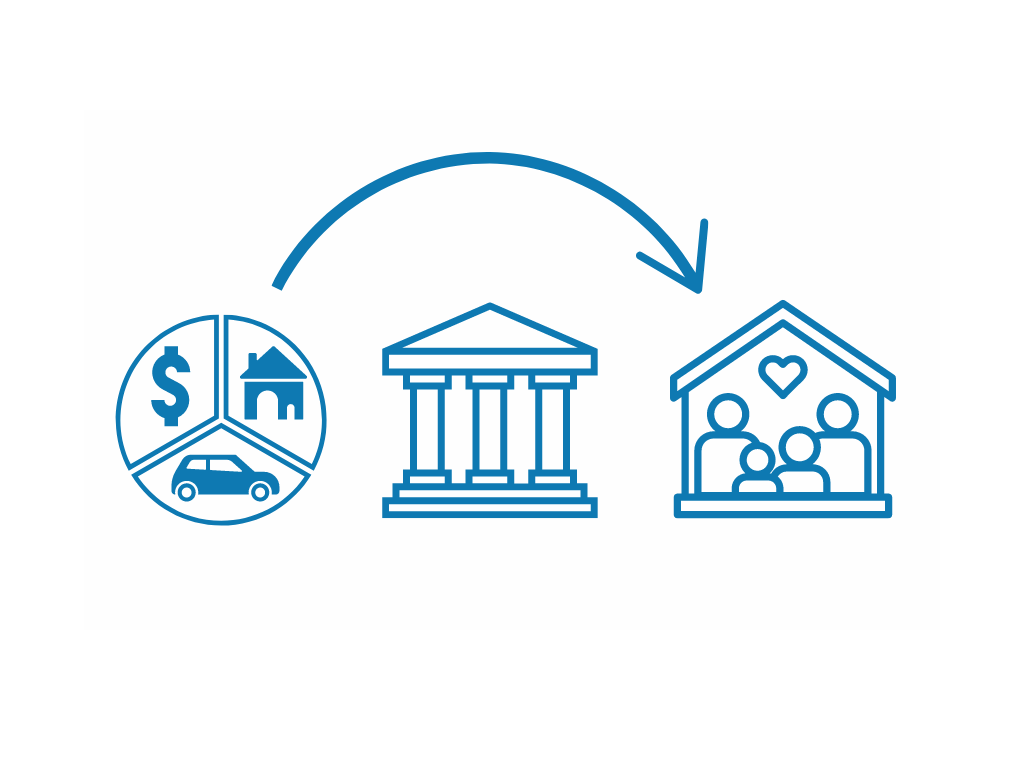
Trusts & Estate Planning
Living Trusts
While Trusts seem complicated, they are a common, accessible estate planning tool. There are many different types of Trusts, but the Revocable Living Trust (Living Trust) is the type that is most often used for Estate Planning. Many estates can benefit from the advantages of using a Living Trust. It all depends upon the type of your assets, goals, and unique situation. At Greenline Law, we implement Living Trusts with a Will (called a pour-over Will), which works as an additional precautionary measure to make sure your estate plan is executed as intended.
The Benefits of Living Trusts
Unlike a Will, a Living Trust functions by transferring assets out of your name into a separate entity. The primary purpose of a Trust is to allow a seamless transition of assets to your beneficiaries.
Trusts can:
- Help avoid costly probate court fees
- Avoid disruptions to business operations
- Are private documents (wills must be made public record)
- Can prevent disputes
- Customizable and flexible during you lifetime

What your Estate Plan includes
The Five Essential Documents
A complete estate plan should come with five essential documents. As part of our counsel, we will prepare these documents to your goals and specifications. In addition, we provide guidance and instructions on how to best properly use them.
- The Testamentary Document (A Will, Trust, or both)
- Durable Power of Attorney
- Healthcare Power of Attorney
- Living Will / Advance Healthcare Directive
- HIPAA Release Form
Is a Trust Right for Me?
In general, Trusts are a good choice for estates that have numerous rental properties, business interests, or many different heirs. While Trusts sound complicated or reserved for the extremely wealthy, Trusts are accessible for anyone to use.
Schedule a call with an estate planning attorney to learn more about Trusts and find out what estate plan works best for you.
The Process of Creating a Living Trust

Consultation
First, schedule a call and meet with an attorney or legal professional. During the meeting, we work together to determine your goals and what type of estate plan works best for you.

Drafting & Discussion
Second, the attorney begins drafting your estate plan. During this process, you will meet with an attorney again to finalize certain details about distributions, beneficiaries, and trustees.

Funding & Execution
Third, we we put the estate plan into action. This includes signing and notarizing the legal documents and funding the Trust. You will be given clear instructions on how your estate plan works and how to keep it current.
How Trusts Work
While Trusts may seem complicated, a Trust is simply a type of legal arrangement. With a Trust, a person or entity (the Trustee) holds and manages assets on behalf of others (beneficiaries), following specific terms and conditions outlined in a trust agreement.
Trusts are commonly used for estate planning, asset protection, and facilitating the efficient transfer of wealth.
There are many different types of Trusts. Each have different purposes and are suited for different situations.


Revocable Living Trusts
One of the most common types of Trusts for estate planning is the Revocable Living Trust, also called a Living Trust. When you hear estate planning attorneys talking about Trusts, it’s usually the Revocable Living Trust.
A Revocable Living Trust is a flexible form of Trust you can control during your lifetime. You can add or remove assets from the Trust and change your estate plan at your discretion.
While it costs more to create and administer, it costs much less in the long run for your loved ones after you pass versus a Will.
Testamentary Trusts
A Testamentary trust is a trust established through a person’s Will, which only takes effect upon their death.
This type of trust allows for the distribution of assets to beneficiaries according to specified conditions.
Testamentary trusts are simpler to set up than revocable living trusts. However, they do not have the probate avoidance benefits that revocable living trusts have.

Check out the Five-Part Series on Revocable Living Trusts

Contact the Firm
Call us or email on the form below.
Want to book an appointment instantly?
Click to schedule below.